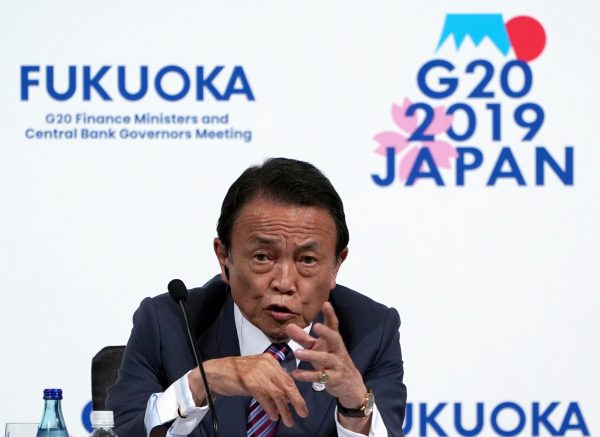While expectations should be kept low for both events, the success of each should be measured by two metrics: Whether they solve current problems and whether they set a credible agenda for future progress.
There are plenty of problems to discuss in the main event. First and foremost are risks to the G20’s central goal of ‘strong, sustainable, balanced and inclusive growth’. Christine Lagarde, head of the IMF, has called the current global outlook ‘fragile’ and the recovery ‘precarious’. The IMF is especially concerned about trade tensions. In a recent blog, Lagarde estimated that the reciprocal tariffs imposed by the United States and China could slow global growth by as much as 0.5 per cent (or about US$455 billion, larger than South Africa’s economy).
For several reasons, this is not an easy topic for the G20. First, the sense of common purpose that brought leaders together in the midst of the global financial crisis of 2008–09 has largely dissipated. Second, the space that major countries have for either fiscal or monetary policy to support growth is severely constrained by run-ups in debt and already low interest rates.
Added to all that are fractures within the group over trade. These range from anger over the tariffs that US President Donald Trump has imposed or threatened against a majority of G20 members and the perception the United States has brought the WTO to the brink, to disagreement over the impact of these actions on growth. At the G20 Finance Ministers meeting in Fukuoka earlier in June, US Treasury Secretary Steven Mnuchin said he did not see evidence that the dispute with China was slowing the US economy.
While the Osaka summit is unlikely to solve the trade problem, those of a glass-half-full disposition may see hope in the results of the December 2018 summit in Argentina. In the Buenos Aires communique, G20 leaders noted in a short paragraph (discouragingly, number 27 out of 31) that trade and investment are ‘important engines of growth, productivity, innovation, job creation and development’. They went on to call for ‘the necessary reform of the WTO to improve its functioning’.
Osaka would mark a step forward if it identified specific priorities for reform. They should include fixing the dispute-settlement mechanism and requiring greater transparency around trade-distorting policies such as subsidies. Leaders should task trade ministers with reaching agreement by the next WTO ministerial meeting scheduled for June 2020 in Kazakhstan.
Host-country Japan has teed up a number of other issues for Osaka where the G20 could play a useful role in global agenda-setting. One is global infrastructure, where Japan has been able to broker a set of G20 ‘principles for quality infrastructure investment’, covering important issues such as debt sustainability, social and environmental protection and strengthened governance. These were clearly developed with China’s Belt and Road Initiative in mind, given its shortcomings in all these areas. It is encouraging that G20 finance ministers — including China’s — endorsed the principles in their communique in June.
The other Japanese priority to watch is data governance. In a speech at Davos in January, Prime Minister Shinzo Abe laid out the concept of ‘data free flow with trust’ and said he wanted the Osaka G20 summit to be remembered for starting a global conversation about this topic. Given the major differences in approach among (and even within) the United States, Europe and China regarding data privacy, localisation and related issues, consensus is unlikely to be reached at Osaka. But Abe has identified a critical issue, and the G20 can make a valuable contribution by putting it on the global economic agenda.
Other Japanese priorities for the G20 summit include international cooperation on global health, aging, cryptocurrencies and tax avoidance. Few solutions to these problems are likely to be forthcoming at Osaka, but again there is agenda-setting value in leaders highlighting them in their communique.
Yet for all of Tokyo’s ambitious efforts to be a constructive steward of the G20, developments outside the meeting room are likely to eclipse the conversation inside. This will certainly be true if President Trump holds a long-awaited summit with President Xi Jinping. The big question is whether the two leaders will reverse the sharp deterioration in bilateral relations since trade talks broke down in early May.
Since then, President Trump has raised existing tariffs on US$200 billion worth of imports from China, launched procedures to impose tariffs on the remaining US$300 billion worth of Chinese imports and blacklisted telecommunications giant Huawei. Beijing has retaliated by raising its own tariffs on US goods and drawing up a list of ‘unreliable’ foreign companies. It has also implied that it might limit exports of rare earths, the critical minerals whose global production China currently dominates.
A Trump–Xi deal on trade at Osaka is certainly possible. Both presidents have an incentive to put the dispute behind them. Tariffs are complicating Beijing’s management of an already-slowing economy and raising questions about Xi’s ability to manage a critical relationship. Trump faces rising stock market volatility, softening economic data — from weak jobs growth to an inverted yield curve — and growing unhappiness among his core supporters about his tariff tactics. The Mexico deal earlier in June is the latest example of Trump’s penchant for quick deals of questionable long-term value.
There is a non-zero chance the two leaders don’t meet at all, if one or the other leader gets cold feet — Trump has said this would result in a new round of tariffs. More likely is an outcome similar to the one at Buenos Aires in December 2018, in which Trump and Xi agree to a temporary truce while trade negotiators work to hammer out a deal. This would postpone the worst effects of the current escalation but is unlikely to solve the deepening and dangerous rift in US–China relations.
Matthew P. Goodman is Senior Vice President and holds the Simon Chair in Political Economy at the Center for Strategic and International Studies (CSIS) in Washington DC.

